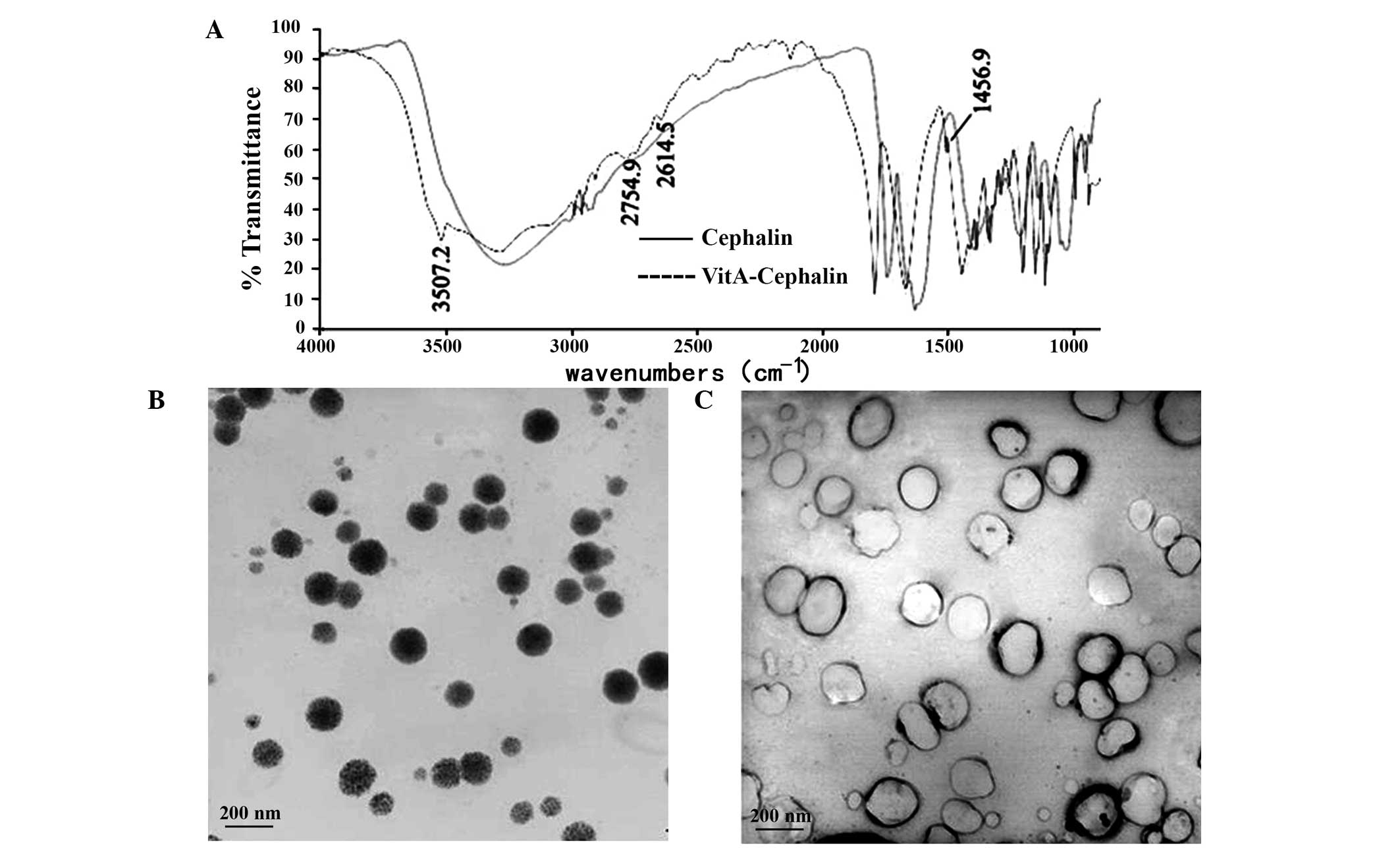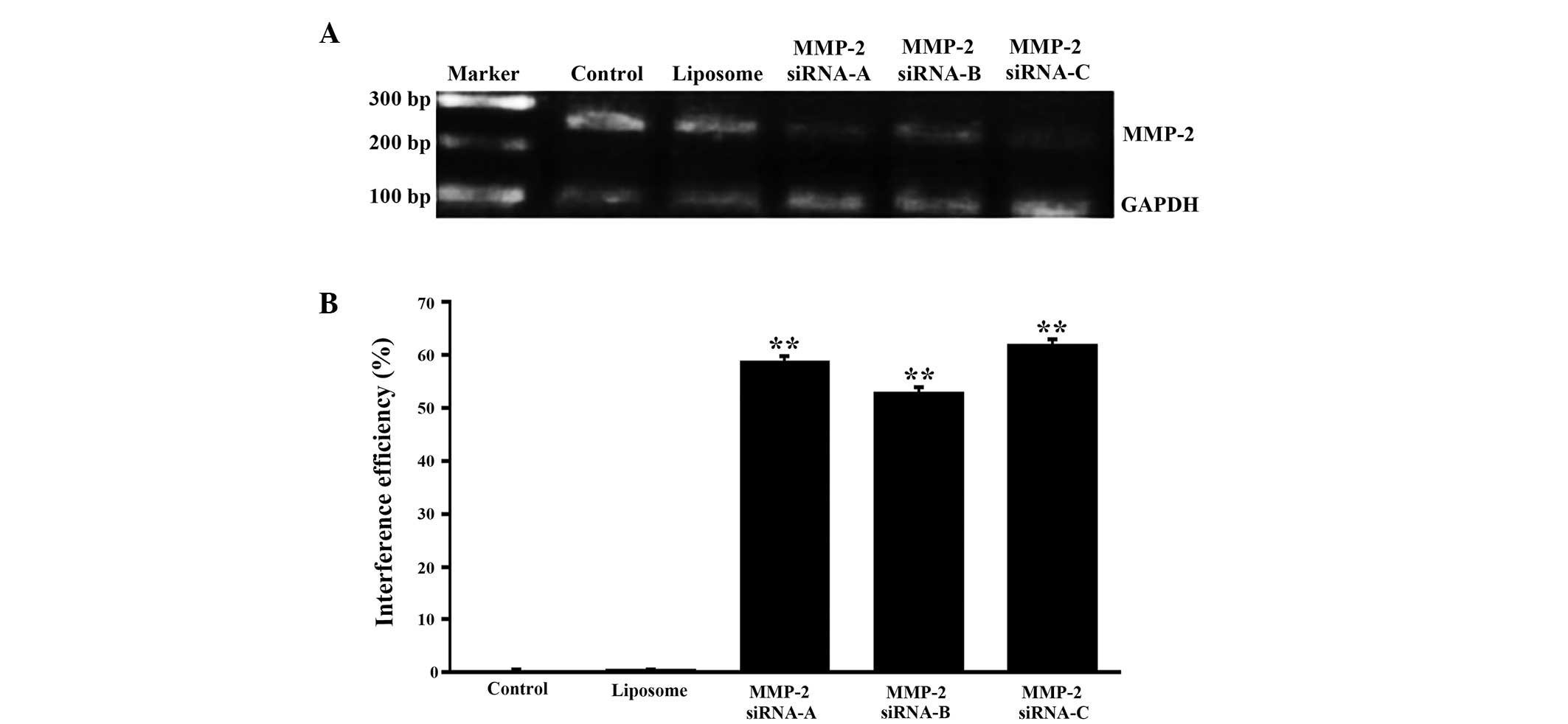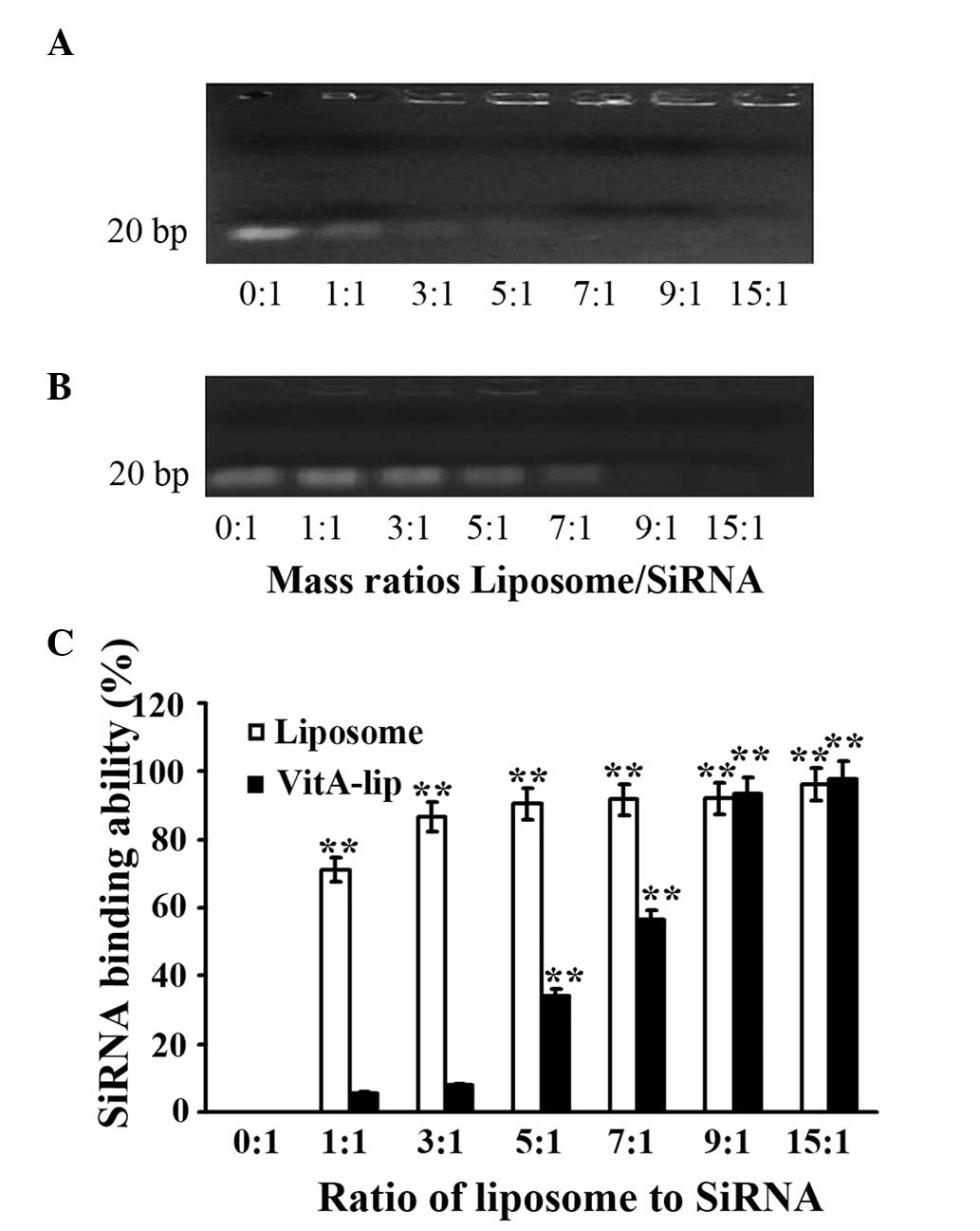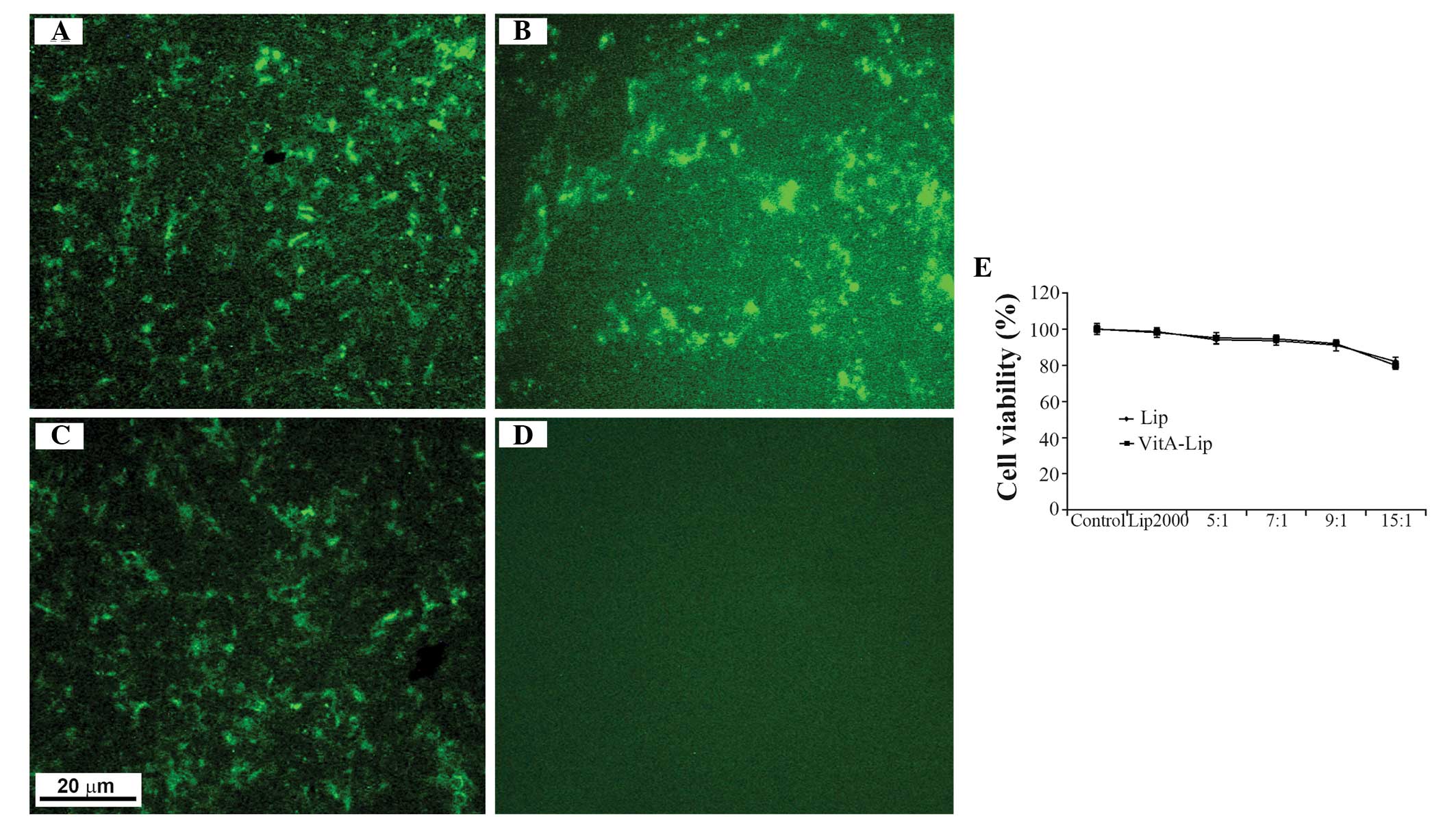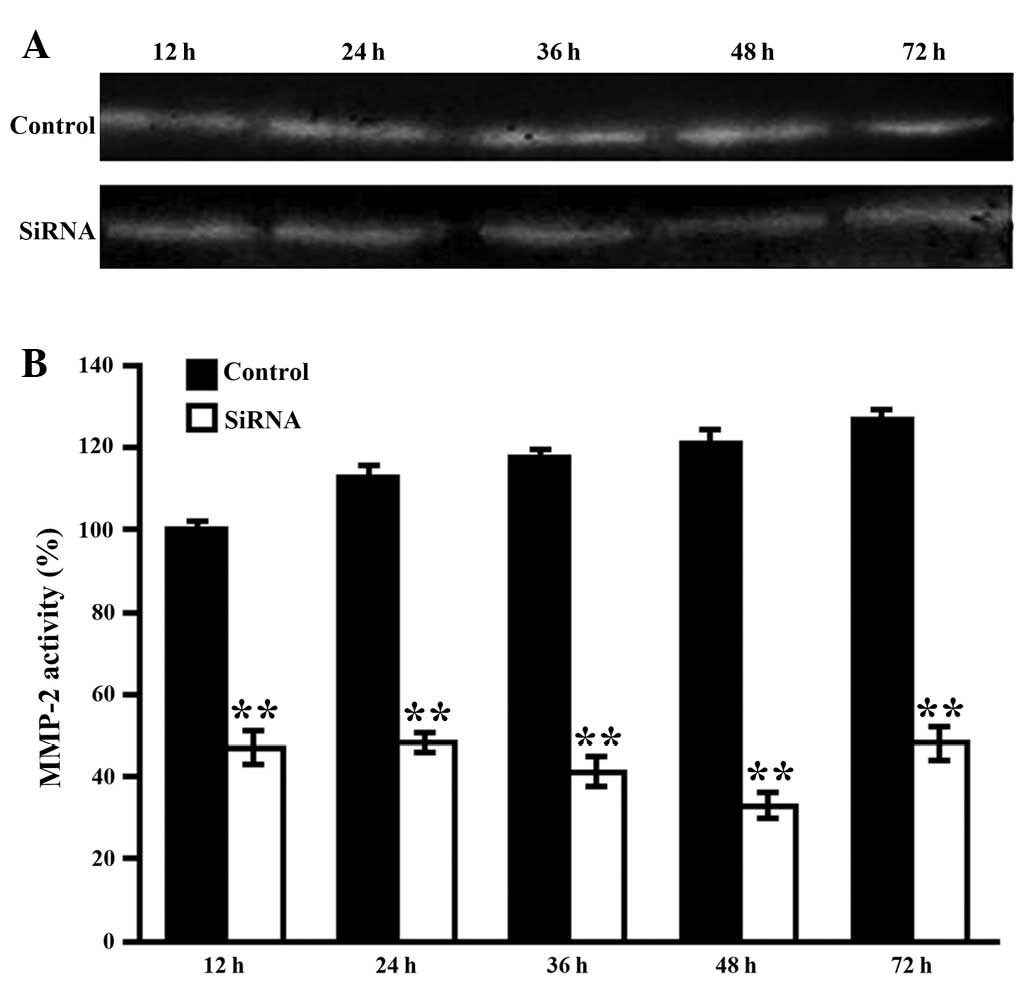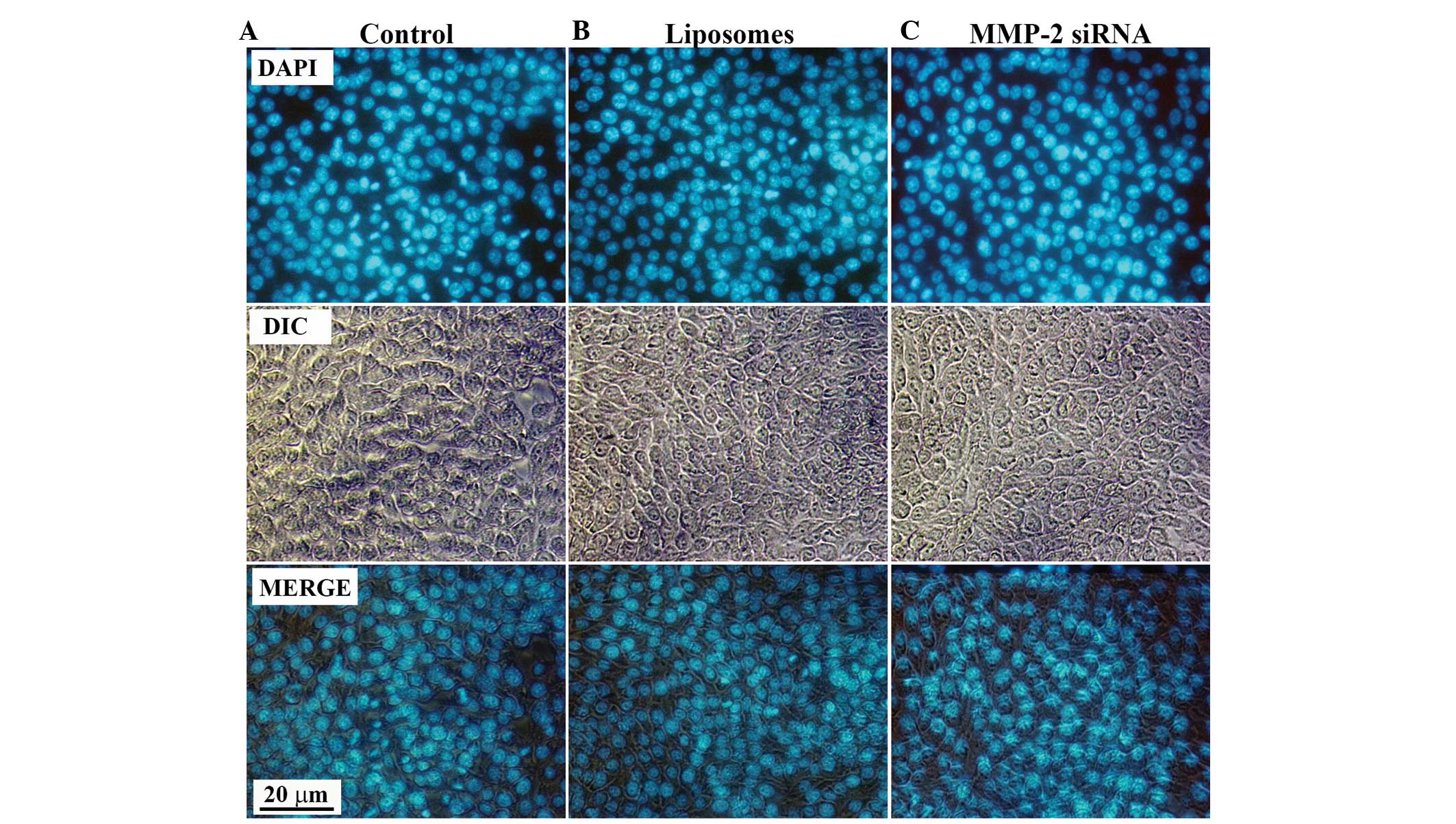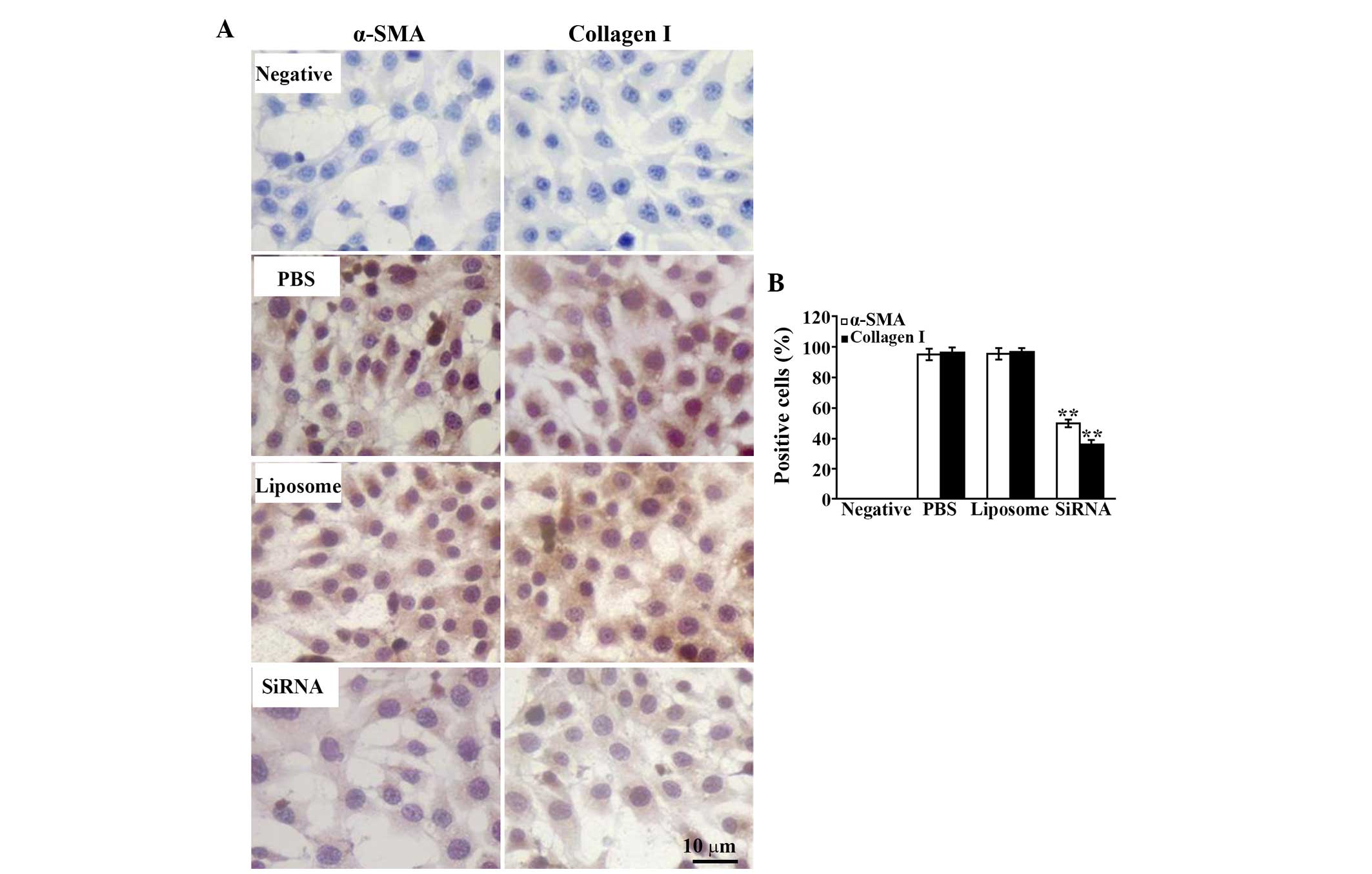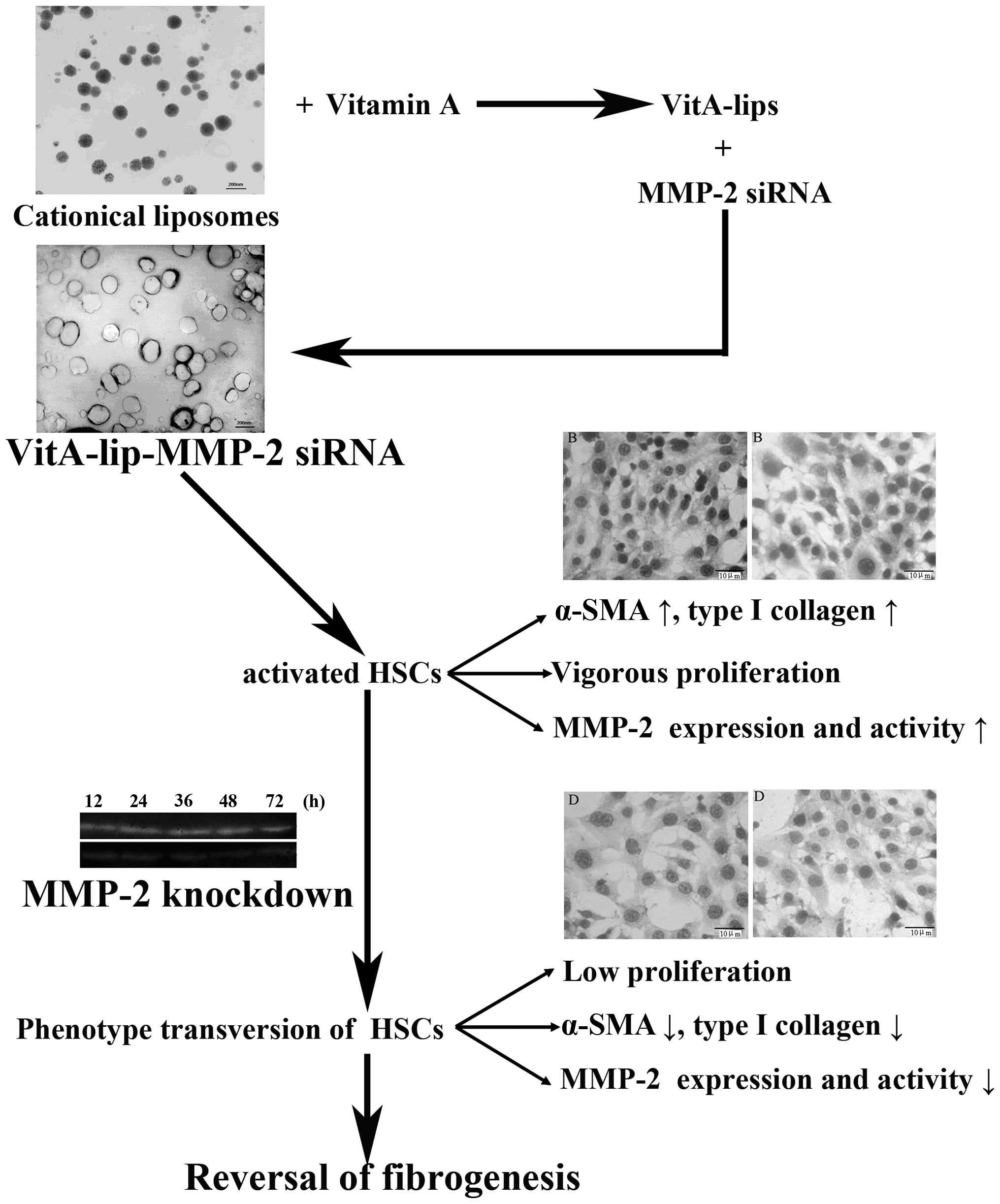|
1
|
Povero D, Busletta C, Novo E, et al: Liver
fibrosis: a dynamic and potentially reversible process. Histol
Histopathol. 25:1075–1091. 2010.PubMed/NCBI
|
|
2
|
Ismail MH and Pinzani M: Reversal of
hepatic fibrosis: pathophysiological basis of antifibrotic
therapies. Hepat Med. 3:69–80. 2011. View Article : Google Scholar : PubMed/NCBI
|
|
3
|
Novo E, Cannito S, Paternostro C, Bocca C,
Miglietta A and Parola M: Cellular and molecular mechanisms in
liver fibro-genesis. Arch Biochem Biophys. 548:20–37. 2014.
View Article : Google Scholar : PubMed/NCBI
|
|
4
|
Hu YB, Li DG and Lu HM: Modified synthetic
siRNA targeting tissue inhibitor of metalloproteinase-2 inhibits
hepatic fibrogenesis in rats. J Gene Med. 9:217–229. 2007.
View Article : Google Scholar : PubMed/NCBI
|
|
5
|
Mormone E, George J and Nieto N: Molecular
pathogenesis of hepatic fibrosis and current therapeutic
approaches. Chem Biol Interact. 193:225–231. 2011. View Article : Google Scholar : PubMed/NCBI
|
|
6
|
Radbill BD, Gupta R, Ramirez MC, et al:
Loss of matrix metalloproteinase-2 amplifies murine toxin-induced
liver fibrosis by upregulating collagen I expression. Dig Dis Sci.
56:406–416. 2011. View Article : Google Scholar
|
|
7
|
Kong D, Zhang F, Zhang Z, Lu Y and Zheng
S: Clearance of activated stellate cells for hepatic fibrosis
regression: molecular basis and translational potential. Biomed
Pharmacother. 67:246–250. 2013. View Article : Google Scholar
|
|
8
|
Balazs DA and Godbey W: Liposomes for use
in gene delivery. J Drug Deliv. 2011:326497–326508. 2011.
View Article : Google Scholar : PubMed/NCBI
|
|
9
|
Kocabayoglu P and Friedman SL: Cellular
basis of hepatic fibrosis and its role in inflammation and cancer.
Front Biosci (Schol Ed). 5:217–230. 2013.
|
|
10
|
Puche JE, Saiman Y and Friedman SL:
Hepatic stellate cells and liver fibrosis. Compr Physiol.
3:1473–1492. 2013. View Article : Google Scholar : PubMed/NCBI
|
|
11
|
Senoo H, Yoshikawa K, Morii M, Miura M,
Imai K and Mezaki Y: Hepatic stellate cell (vitamin A-storing cell)
and its relative-past, present and future. Cell Biol Int.
34:1247–1272. 2010. View Article : Google Scholar : PubMed/NCBI
|
|
12
|
Fan RH, Chen PS, Zhao D and Zhang WD:
Hypoxia induced by CoCl2 influencing the expression and the
activity of matrix metalloproteinase-2 in rat hepatic stellate
cells. Zhonghua Gan Zang Bing Za Zhi. 15:654–657. 2007.In Chinese.
PubMed/NCBI
|
|
13
|
Lee UE and Friedman SL: Mechanisms of
hepatic fibrogenesis. Best Pract Res Clin Gastroenterol.
25:195–206. 2011. View Article : Google Scholar : PubMed/NCBI
|
|
14
|
Kumar M and Sarin SK: Is cirrhosis of the
liver reversible? Indian J Pediatr. 74:393–399. 2007. View Article : Google Scholar : PubMed/NCBI
|
|
15
|
Gressner AM: Transdifferentiation of
hepatic stellate cells (Ito cells) to myofibroblasts: a key event
in hepatic fibrogenesis. Kidney Int Suppl. 54(Suppl): 39–45.
1996.
|
|
16
|
Senoo H, Hata R, Nagai Y and Wake K:
Stellate cells (vitamin A-storing cells) are the primary site of
collagen synthesis in non-parenchymal cells in the liver. Biomed
Res. 5:451–458. 1984.
|
|
17
|
Enzan H, Himeno H, Iwamura S, et al:
Immunohistochemical identification of Ito cells and their
myofibroblastic transformation in adult human liver. Virchows Arch.
424:249–256. 1994. View Article : Google Scholar : PubMed/NCBI
|
|
18
|
Schuppan D and Afdhal NH: Liver cirrhosis.
Lancet. 371:838–851. 2008. View Article : Google Scholar : PubMed/NCBI
|
|
19
|
Arthur MJ, Friedman SL, Roll FJ and
Bissell DM: Lipocytes from normal rat liver release a neutral
metalloproteinase that degrades basement membrane (type iv)
collagen. J Clin Invest. 84:1076–1085. 1989. View Article : Google Scholar : PubMed/NCBI
|
|
20
|
Li J, Niu JZ, Wang JF, Li Y and Tao XH:
Pathological mechanisms of alcohol-induced hepatic portal
hypertension in early stage fibrosis rat model. World J
Gastroenterol. 11:6483–6488. 2005.
|
|
21
|
Li J, Fan R, Zhao S, et al: Reactive
oxygen species released from hypoxic hepatocytes regulates MMP-2
expression in hepatic stellate cells. Int J Mol Sci. 12:2434–2447.
2011. View Article : Google Scholar : PubMed/NCBI
|
|
22
|
Domitrović R, Jakovac H, Marchesi VV and
Blažeković B: Resolution of liver fibrosis by isoquinoline alkaloid
berberine in CCl4-intoxicated mice is mediated by suppression of
oxidative stress and upregulation of MMP-2 expression. J Med Food.
16:518–528. 2013. View Article : Google Scholar
|
|
23
|
Schroeder A, Levins CG, Cortez C, Langer R
and Anderson DG: Lipid-based Nano therapeutics for siRNA delivery.
J Intern Med. 267:9–21. 2010. View Article : Google Scholar : PubMed/NCBI
|
|
24
|
Wasungu L and Hoekstra D: Cationic lipids,
lipoplexes and intracellular delivery of genes. J Control Release.
116:255–264. 2006. View Article : Google Scholar : PubMed/NCBI
|
|
25
|
Sato Y, Murase K, Kato J, et al:
Resolution of liver cirrhosis using vitamin A-coupled liposomes to
deliver siRNA against a collagen specific chaperone. Nat
Biotechnol. 26:431–442. 2008. View
Article : Google Scholar : PubMed/NCBI
|
|
26
|
Vogel S, Piantedosi R, Frank J, et al: An
immortalized rat liver stellate cell line (HSC-T6): a new cell
model for the study of retinoid metabolism in vitro. J Lipid Res.
41:882–893. 2000.PubMed/NCBI
|
|
27
|
Kawada N: Evolution of hepatic fibrosis
research. Hepatol Res. 41:199–208. 2011. View Article : Google Scholar : PubMed/NCBI
|















